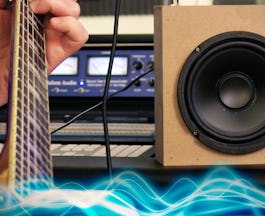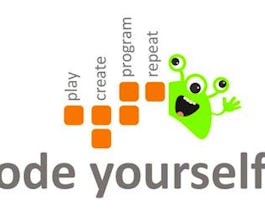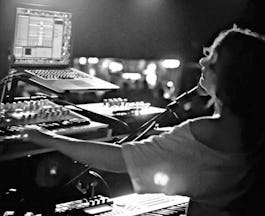Filter by
The language used throughout the course, in both instruction and assessments.
Choose the Sound Engineer Course That Aligns Best With Your Educational Goals
 Status: Free
Status: FreeUniversity of Rochester

Skills you'll gain: Python Programming, Microsoft Excel, Data Visualization, Spreadsheet Software, Data Analysis, Exploratory Data Analysis, Plot (Graphics), Data Management, Databases, SQL, Statistical Visualization, Big Data, Business Analysis, Data Mining, Data Science, General Statistics, NoSQL, R Programming, Cloud Computing, Computer Programming, Data Visualization Software, Interactive Data Visualization, Machine Learning, Machine Learning Algorithms, Probability & Statistics, Regression

Skills you'll gain: Project Management, Strategy and Operations, Leadership and Management, Communication, Business Communication, Collaboration, Agile Software Development, Software Engineering, Entrepreneurship, Scrum (Software Development), Planning, Supply Chain and Logistics, Change Management, Finance, Organizational Development, Product Management, Risk Management, Budget Management, Influencing, Culture, Emotional Intelligence, People Management, Problem Solving, Procurement
 Status: Free
Status: FreeThe University of Edinburgh
Skills you'll gain: Algorithms, Computer Programming, Problem Solving, Computer Graphics, Creativity, Decision Making, Programming Principles, Application Development, Computer Graphic Techniques, Critical Thinking

Berklee

IIT Guwahati
Skills you'll gain: Data Visualization, Python Programming

University of Colorado Boulder
Skills you'll gain: Algorithms, Leadership and Management, Mathematics, Probability & Statistics, General Statistics, Problem Solving, Theoretical Computer Science, Computer Programming, Communication, Databases, Critical Thinking, Data Structures, Data Management, Estimation, Finance, Data Analysis, Design and Product, Research and Design, Systems Design, Mathematical Theory & Analysis, Database Design, Hardware Design, Writing, Data Model, Project Management, Strategy and Operations, Machine Learning, Probability Distribution, SQL, Computational Logic, Decision Making, Strategy, Database Theory, Database Administration, PostgreSQL, Computer Architecture, Operating Systems, Computational Thinking, Computer Programming Tools, Graph Theory, Planning, Process Analysis, Statistical Tests, Internet Of Things, Correlation And Dependence, Database Application, Financial Analysis, Statistical Analysis, Algebra, Business Communication, Machine Learning Algorithms, Product Management, Regression, Agile Software Development, Business Analysis, Data Visualization, Product Design, Professional Development, Statistical Machine Learning, Computer Networking, Accounting, Business Process Management, Cost Accounting, Creativity, Linear Algebra, Python Programming, Material Handling, People Management, Programming Principles, Statistical Programming, System Programming, Deep Learning, Calculus, Investment Management, Organizational Development, Risk Management, Business Design, Entrepreneurship, Experiment, Performance Management, Product Development, Scrum (Software Development), System Security, Computer Vision, Business Intelligence, Differential Equations, Exploratory Data Analysis, Financial Accounting, Network Security, Product Lifecycle, System Software, Visual Design, Cloud Computing, Microarchitecture, Financial Management, Graphic Design, Supply Chain and Logistics, Security Engineering, Big Data, Collaboration, Distributed Computing Architecture, Innovation, Market Analysis, Marketing, Network Architecture, Software Engineering, Software Testing, Amazon Web Services, Cloud Applications, Cloud Platforms, Cloud Standards, Security Strategy, Adaptability, Applied Mathematics, Budget Management, Leadership Development, Linux, Network Analysis, Operations Management, Scientific Visualization, Market Research, NoSQL, Data Mining, Negotiation, Product Strategy, R Programming, Software Architecture, Dimensionality Reduction, Forecasting, Kubernetes, Business, Computer Science, Data Science, Data Warehousing, Resilience

Coursera Project Network
Skills you'll gain: Marketing, Search Engine Optimization

Google
Skills you'll gain: Data Analysis, SQL, R Programming, Business Communication, Spreadsheet Software, Business Analysis, Data Visualization, Data Management, General Statistics, Big Data, Communication, Computer Programming, Data Science, Data Visualization Software, Databases, Exploratory Data Analysis, Extract, Transform, Load, Leadership and Management, Microsoft Excel, Problem Solving, Small Data, Statistical Programming, Tableau Software

Skills you'll gain: Cloud Computing, Cloud Applications, IBM Cloud, Cloud Infrastructure, Computer Programming, Python Programming, DevOps, Cloud Management, Cloud Platforms, Javascript, Web Development, Application Development, Software Architecture, Cloud API, Cloud Storage, Cloud-Based Integration, Software Engineering, Microarchitecture, Continuous Delivery, Continuous Integration, Docker (Software), Full-Stack Web Development, Software As A Service, Django (Web Framework), Cloud Foundry, Database Application, Databases, Kubernetes, Other Cloud Platforms and Tools, SQL, Software Engineering Tools, Software Testing, Data Management, NoSQL, Collaboration, Computer Science, Data Analysis, Front-End Web Development, Leadership and Management, Mergers & Acquisitions, React (web framework)

Skills you'll gain: Software Engineering, Computer Programming, Software Engineering Tools, Application Development, Programming Principles, Software Architecture, Agile Software Development, Communication, Full-Stack Web Development, Technical Product Management, Python Programming

Google
Skills you'll gain: Computer Networking, Network Architecture, Network Model, Networking Hardware, Network Analysis, Computer Architecture, Critical Thinking, Problem Solving, Communication, Human Computer Interaction, Network Security, Linux, System Security, Cloud Computing, Computer Programming, Customer Support, Cryptography, Leadership and Management, Operating Systems
Searches related to sound engineer
In summary, here are 10 of our most popular sound engineer courses
- Fundamentals of Audio and Music Engineering: Part 1 Musical Sound & Electronics: University of Rochester
- IBM Data Analyst: IBM
- Google Project Management:: Google
- Code Yourself! An Introduction to Programming: The University of Edinburgh
- Introduction to Ableton Live: Berklee
- Bachelor of Science in Data Science & AI: IIT Guwahati
- Master of Science in Electrical Engineering: University of Colorado Boulder
- Search Engine Optimization (SEO) with Squarespace: Coursera Project Network
- Google Data Analytics: Google
- IBM Full Stack Software Developer: IBM










